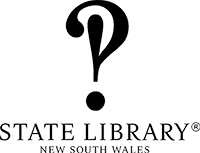FL14369315
Facsimile
Transcription
Nott, who had remained in Tahiti, complained to Hassall in 1803,
''Had the muskets you sent to Mr Henry been good ones I should have taken them, but they
are of no use. Those sold to the natives by Mr Harford were so neat in their eyes that they
would not esteem those you sent at all. But if you will be so kind as to send me two neat
ones the first opportunity I shall esteem it a favour...''
Rowland and later his son, Thomas Hassall, were consistent suppliers of weapons and
ammunition to the missionaries on the islands who bartered them for produce, services and favours.
In fact Thomas Hassall sent two English muskets to Brother Bicknell in 1815 and these were
exchanged for two tons of meat. King Pomare continually requested guns to use in the violent
struggles which flared up between rival chieftans.
As well as supplying guns, Rowland Hassall only demurred at supplying King Pomare with
a still which the King requested, by stating that only the rigid prohibition of the manufacture and sale
of stills imposed by Governor Bligh prevented him from complying with the king's request although
he reassured him that he would in future if ever the rules were relaxed.60
Throughout his life Hassall ''never lost sight of his original destination as a Missionary, and
continued to perform the duties of one, by preaching the Gospel in almost all parts of the colony''.
His life was said to have been a ''continued example of religion and piety, extensive benevolence and
hospitality''.61 He held very strong views on proper adherence to the principles which he preached.
He was meticulous about keeping the Sabbath and he warned whenever possible about conduct which
he considered to be inappropriate. For example he opposed race meetings which he said were the
result of activity by the devil who had ''stirred up his Agents to establish Horse Races, Cock fighting
Bulls [obscure] and almost every kind of sinful amusements''. Nevertheless he was sure that his and
the influence of other preachers would win ''and altho' a great Evil I take it as a Token for good for
the enemy of Souls to see his Kingdom tottering''.62
Not all Hassall's interest were concerned with his mission as a preacher. He had a growing
family and assigned servants to support and although he had a land grant it seems that he did not
devote much time to it personally as far as cultivation was concerned. He had added 60 acres to his
original grant and in 1801 his sole stock consisted on two horses, five sheep, two goats and one hog,
hardly enough to support his dependents.63 He, like others in the colony, was struggling to make
ends meet and he was one of a group of settlers to petition Governor Hunter in January 1800 to
maintain the price of wheat at the level of the previous year and to establish a public store from
which they may be supplied with ''necessary articles of life''.64
60 Wannan, Bill, Very Strange Tales, The Turbulent Times of Samuel Marsden, Lansdowne Press,
Melbourne, 1962, p.121.
61 Ibid.
62 Yarwood, A.T., Samuel Marsden - The Great Survivor, Melbourne University Press, 1996 edition,
p.141.
63 Historical Records of New South Wales, Vol. IV, p.648.
64 Historical Records of Australia, Vol. II, pp.444-5.
23
Notes and Questions
Nobody has written a note for this page yet
Please sign in to write a note for this page


